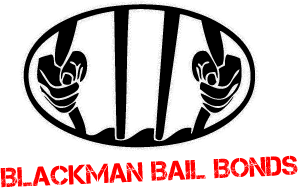In the state of Pennsylvania, when a person is arrested and taken to jail, they may be given the option of posting bail. This is where the phrase “Bail me out” comes from. Bail is a monetary fee set by the jail ($20,000 in this example). Any party or person can pay a predetermined percentage of that fee to secure your temporary conditional release from jail. In most cases, 10% is the set number, so in the example below, that equates to $2000. So how do bail bonds work? We will explain how Blackman Bail Bonds can help you with this process.
How Does Bail Work?
The jail set bail at $20,000 at booking. You can post a “surety” payment, that 10% fee, to gain release. This $2000 is a good faith deposit, to show that the person will show up to all scheduled court dates, including trial. If all appearances are met, you’ll get that $2,000 back, if not, the entirety of bail (all $20,000) is due.
Since most folks don’t have easy access to $2,000, there stands the option to use a 3rd party to secure the bail payment. That’s where a bail bondsman comes in. 
The process is essentially the same. You or your family pay a premium (in cash or collateral) the bail bondsman and sign an agreement. The bail bondsman pays the $2000 to the jail.
Conditional Release
In PA, a bail bondsman is limited in the amount they can charge for services. A bail bondsman can charge up to 10% for the first $100 they post as bail, and 5% on every $100 after that. Following our previous example, for a $2000 bail fee, your bail bondsman can charge up to $105. This is much easier to rustle up than the full $2000.
Once the bail bondsman posts the bail, the release process will begin. During this process, which can take some time, the inmate will have to abide by all binding laws and sign a pre-release order, outlining conditions of their release. These conditions can vary based on the kind of crime that initially brought them into the jail system.
Payment Breakdown
Provided that all court dates are met, and all conditions are followed, whoever posted bail (in this case, the bail bondsman) will get the $2000 back, regardless of conviction or acquittal. The bail bondsman will keep the premium you’ve paid them. You’ve only spent $105, instead of risking $2000 of your own money to get temporary freedom. You won’t see the $105 back, and this is how a bail bondsman makes their living.
Skipping Bail
If the newly released inmate “skips bail” and doesn’t show to their scheduled court appearances, the bail bondsman now owes the court the full $20,000. Per the signed agreement and Pennsylvania State law, the bail bondsman now has the right to collect that amount from the person who signed the agreement.
This can include seizure of assets, legal action through small claims courts, or collection through revenue services in the form of wage or tax garnishments. Further, many bail bond agencies retain the legal right and authority to locate and detain your friend to return them to jail.
They do not need a warrant and may detain the person for as long as it is necessary to return them to jail. They may even cross state lines to pursue anyone who skips bail. This may result in further costs to the defendant, and towards any party financially responsible for them.
Blackman Bail Bonds
Contact us at any time, 24/7/365, to discuss your options for (near) immediate release for yourself or a friend at (717) 919-2015.


